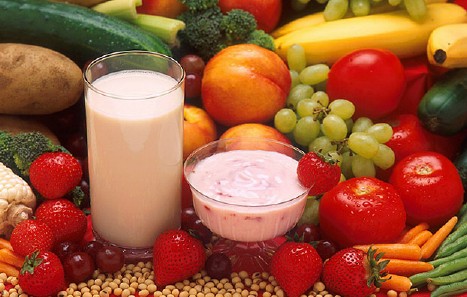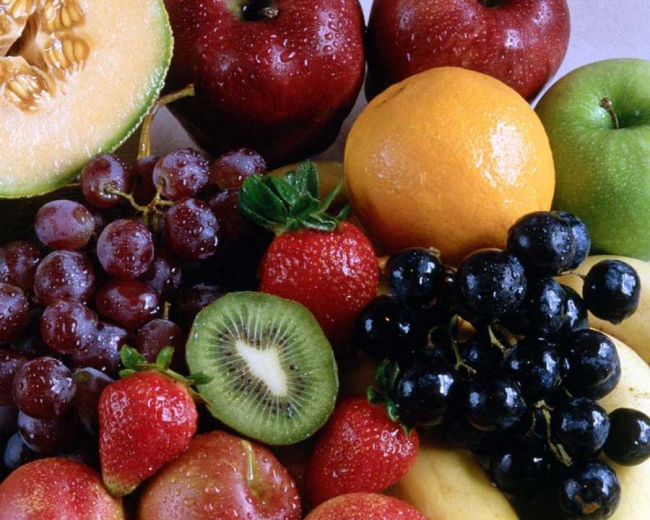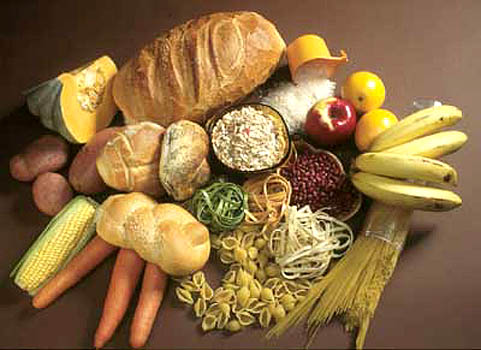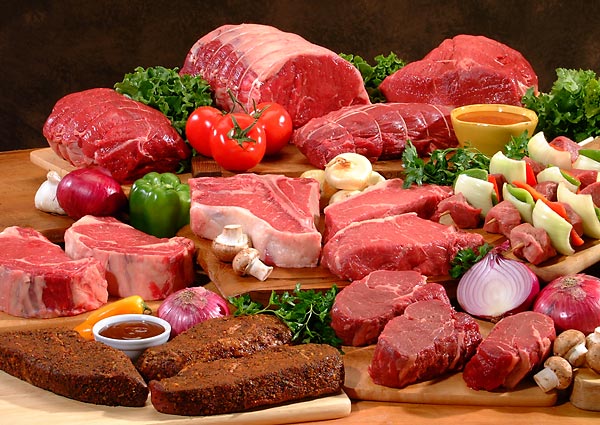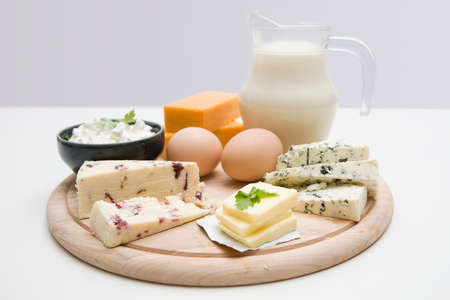The health industry is literally fraught with a plethora of damaging, misleading and confusing messages. The sad part is, half of them seem to originate from health care professionals themselves: people like researchers, doctors and television experts. So, when you hear it from the horse’s mouth, there is no option but to believe what they are saying.
The most pressing problem of our time, especially where it concerns food related stories, is that media channels seem to be at the root of all confusions, creating and circulating them as if they were real. Meat contains all the protein on earth. Fruits cause cancer. Margarine is better than butter. Drinking water between meals gives rise to indigestion. The less your read, the merrier we say. Such stories are abounded and you just cannot escape them. Hence, our suggestion is, do not lend an attentive ear to everything you hear, because half of them are plain stories.
Food is one of the most confusion packed topics today. When it comes to choosing a proper diet, people find themselves in the middle of nowhere. You really don’t know what to choose and how much of it to eat. As if that was not enough, developed countries where knowledge and money are always available in generous amounts, are filled with the most overweight people on earth. So, you see the point is made, even the self-proclaimed most intelligent people don’t know where to draw the line when it comes to food. Our ideas about eating seem to be driven around by concepts like food gives power or food gives energy. It is primarily due to our belief in such stories that we eat anything and everything that health experts advise us to.
It goes without saying that finding the top food myths has not been an easy task. The number of confusions surrounding food got us fairly confused. Putting a majority of them together, it was found that if you believed them and re-structured your diet chart accordingly, you will probably die either of starvation or of malnutrition. So, what exactly are the truths about foods and their potential benefits? Hence, to give you a better perspective of things, here is a list of the top five food myths which if followed can spell a plethora of problems for your health.
Chocolate causes acne
Of all accusations that have been leveled against the innocent sweet, this is probably the meanest. The myth is, in fact, so common that parents and teenagers have started believing it. Chocolate might not be a very delectable delicacy if you have migraines or kidney stones, but, come on, there is no point blaming it for your acnes. And no, you don’t have to take our word for it. Here is a scientific explanation into why the myth about chocolates being an acne trigger is nothing but, well, a chocolate box story.
The truth is that no food so far has been proven, by itself, to trigger or cause acne. Acne and chocolate, despite the stigma of fear and myth, have never gone hand in hand. Acnes are caused by reasons greater and far more important than the sugary chocolates. Acne breakouts, say research, have more to do with a person’s overall diet. You could be as much at risk for developing health related maladies like acnes, vitamin deficiencies or tooth decay from eating chocolates as you could be from eating carrots. Carrots do not belong to the list of celebrity foods is a different story though.
Fruits put you at risk for cancer
It is beyond us how some naturopath could actually make such an outrageous claim about fruits. If you want to stay away from cancer, we can give you a list of thousand different prevention methods. But trust us not to include leading a “fruitless” life in that list. Every week a fruit is discovered containing anti-cancer antioxidant by the medical community. In fact, grab hold of every piece of research you can on the subject and go through them minutely. In at least 90% of those of you who are bound to find overwhelming evidence which suggests that fruits reduce the incidence of cancer.
How, in the name of heavens, could fruits have anything to do with increased cancer risks is a territory we better not chart. Instead, let us focus on the reasons which are believed to have vented such myths and misconceptions. It is said that since cancerous cells feed primarily on sugar, people affected with cancer should avoid fruits to prevent the cells from growing out of control. However, the myth makers missed one important point here. Blood glucose can be produced by any food. The glucose is tricky to avoid. Even if you eat fat or protein rich food and avoid fruits, the nutrients will, in any case, be converted to glucose. That way, we will have to starve ourselves to death in order to avoid cancer.
Consuming carbohydrates makes you fat
This piece has been passed down from generation to generation. Time is, therefore, to get it busted. Carbohydrates are considered to be the most confusing of all nutrients. In the first place, we will like to point out that the only thing which makes us fat is eating, well, consuming more calories than our bodies can support. Protein, carbohydrates or fats, it hardly matters. Whatever you eat, if it crosses the limit, will make you fat. So, there is hardly any difference between cheese burgers, grilled salmon and steamed broccoli, when it comes to loosing weight or gaining some. So, if you eat large helpings of food, irrespective of what it actually is, you gain weight.
Like everything around you, even carbohydrates have some good and some bad effects attached. Complex carbohydrates form the good part of the story. This includes everything from oatmeal to brown rice, from whole wheat breads to whole grains, and from fruits to vegetables. The bad version would be, quiet simply, the simple carbs. Processed junk food, white bread, candy, chips, soda and white rice, all come into this category.
If simple carbs are devils in disguise, then the same could be said of foods like carrots or mushrooms. The truth is every food item comes with a set of high points and flip sides and carbs are not exceptions either. Complex carbs, in fact, are so beneficial for your health that you must include some in your daily diet.
Meat is the only complete protein food
That meat is the only complete protein food, has formed the meat industry’s biggest and strongest weapon against vegetables. However, let us now clear the doubt. Proteins are long strings of amino acids bound together. The human body, in order to create body tissues, needs a complete set of such acids. Meats are found to include them all. But so do a majority of plants. A person, who has not touched meat all his life, would still be able to derive his protein nutrients from vegetables, beans, fruits and grains.
As a matter of fact, we need only ten percent of the calories derived from protein. Pregnant women and sports persons need a little more. However, if you are eating calories from a vegetarian diet, there is no reason why your task of getting the right protein dosage should look next to impossible.
While the whole world may go gaga over protein deficiency being the biggest health problem, the medical community thinks otherwise. There are countless other ailments that doctors are literally spending sleepless nights over. These include obesity, diabetes, cancer or he
art disease, in brief all maladies linked to meat or consuming animal products. In a study, which examined vegetarian diets, it was found that veggies had a plethora of health benefits over and above the protein high meat.
Vegetarian diets, the medical community opines, are good for every stage of the human life cycle, including during lactation, infancy, pregnancy, adolescence and childhood. Vegetarians have, in fact, been reported to carry reduced body mass indices than the non-vegetarians.
Proteins: the more the merrier
The protein myth deserves to be given the title of the most irritating food myths ever. There have been countless studies to demonstrate the side effects of consuming excessive protein. But the number of protein worshippers seems to be increasing with each passing day. Let us now bust the myth.
The primary reason your body needs protein is to rebuild the damaged tissues and produce enzymes, hormones and other things. However, more cannot be considered absolutely merrier, especially where it concerns protein. Too much protein puts you at risk for developing problems like kidney stones and osteoporosis. Protein high diets cause calcium to move from kidneys to urinary tract. In patients of kidney disorders, high protein diets may also accelerate loss of kidney functions.
Research shows that consuming protein, which is thirty percent more than your daily calorie intake could prove dangerous. It can at least be reassured that consuming extra protein won’t help you build a solid mass of muscles. Rather, it might put other systems in body under stress. According to the medical community, consuming more protein and accentuating the total calorie intake while maintaining the same old workout regime will create an equal amount of muscle mass and additional fat.


